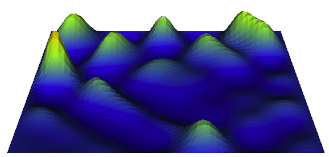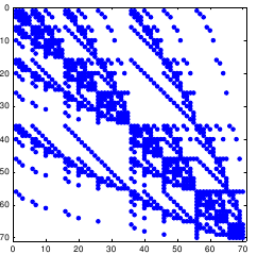WIAS-ALEA
Adaptive High-dimensional Uncertainty Quantification
Overview

ALEA is an open source library for research in new methods for Uncertainty Quantification (UQ). It's focus lies on functional spectral methods on the basis of polynomial chaos expansions and the treatment of high-dimensional discretizations. For this, adaptive sparse grid techniques and tensor based low-rank formats are incorporated. Apart from stochastic forward problems (PDEs with random data), methods for (sample-free) Bayesian inverse problems are available.
Features
 ALEA has been employed for different WIAS projects and publications. It has been developed in cooperation with the TU Brunswick (group Prof. Matthies). The framework will be extended within the frame of ongoing research projects. Hence, the listed features may be in the test, development or planing phase.
ALEA has been employed for different WIAS projects and publications. It has been developed in cooperation with the TU Brunswick (group Prof. Matthies). The framework will be extended within the frame of ongoing research projects. Hence, the listed features may be in the test, development or planing phase. - systems of orthogonal polynomials
- low-rank representations of PDEs with random data
- adaptive stochastic Galerkin methods
Implementation
- ALEA is written in python and thus platform independent.
- The (exchangeable) FEM backend is FEniCS by default. The WIAS library pdelib has also been used successfully.
Application areas

- Adaptive stochastic Galerkin methods
- Adaptive Galerkin methods in hierarchical tensor formats
- Bayesian inverse problems in hierarchical tensor formats
Contact
Phone, E-mail
Tel.: 030 20372-413
E-mail: alea@wias-berlin.de
WIAS Software
- ALEA - Framework for high-dimensional functional Uncertainty Quantification
- aws - Adaptive weights smoothing
- BALaser for the simulation of dynamics in broad-area semiconductor lasers
- ddfermi - drift diffusion simulation tool
- WIAS R-packages for imaging / neuroscience
- LDSL-tool for the simulation of longitudinal dynamics in semiconductor lasers
- pdelib - a FVM and FEM toolbox for PDEs
- TetGen - a Delaunay Tetrahedral Mesh Generator


